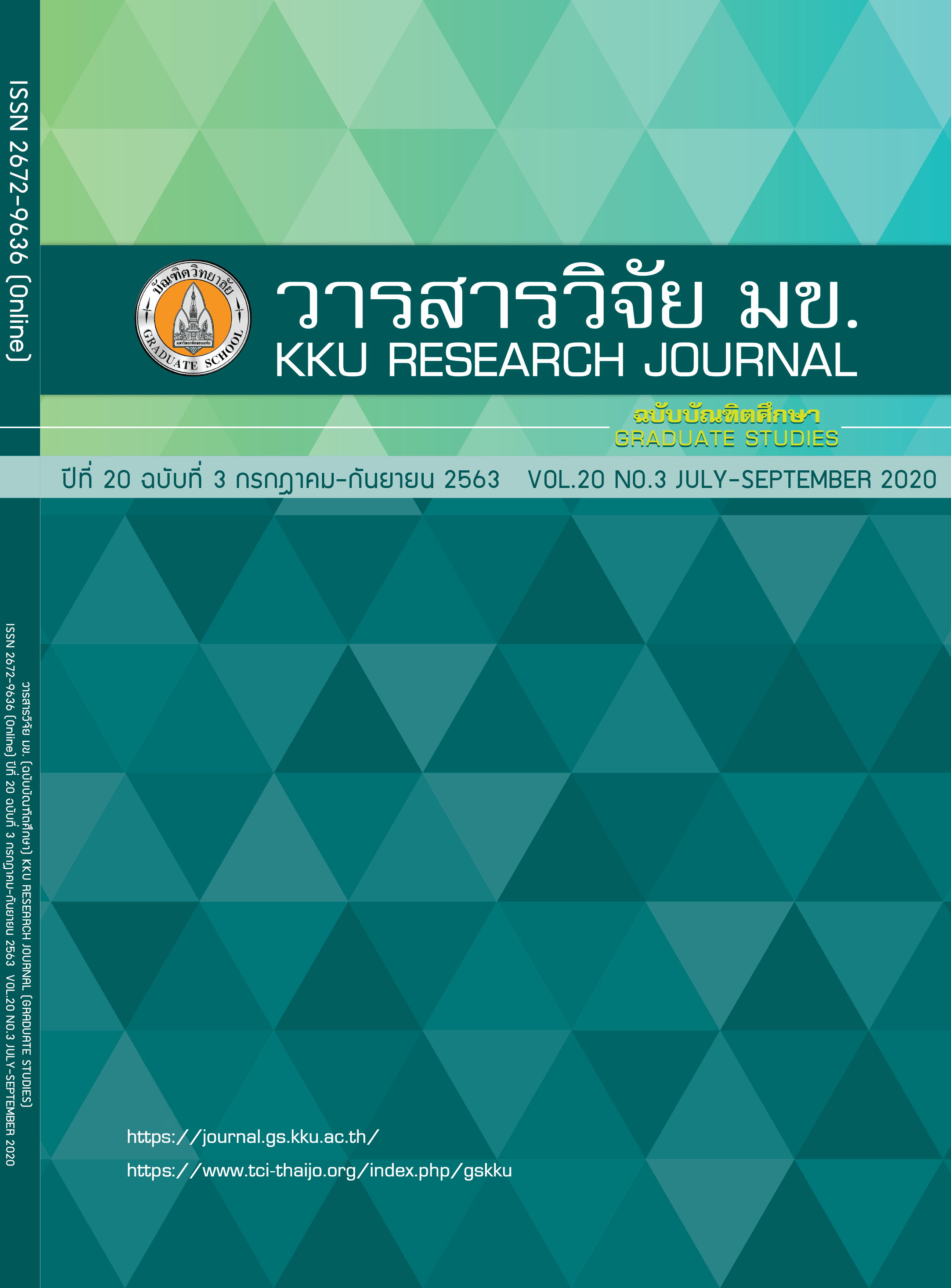The study of Motivation to Participate in Sport Level and Related Factors among Cambodia National Athletes
Keywords:
Motivation, Participation in sport, CambodiaAbstract
This descriptive study was designed to assess the motivation to participate in sport level and related factors among Cambodia National Athletes (CNAs). The inclusion criteria were the CNAs who aged (18-40 years old) and registered with identified from National Sports Training Center (NSTC), Cambodia. The study population was 347 players. The study tool was a self-administrated questionnaire which consists of demographic data, sports motivation scale (SMS -28) and factor related to sport motivation. The sports motivation scale (SMS -28) English version has been translated into the Khmer language by back translation technique which the Cronbach’s alpha coefficient found 0.93. Descriptive statistics, independent sample t-test, ANOVA and multiple regression were applied for data analysis. The response rate was 100.0%. The results show a high level of motivation as the mean score was 4.13 (0.31) 95%CI, 4.09,4.15. The highest dimension of sports motivation level was extrinsic motivation– identified and intrinsic motivation - to experience stimulation. When controlling other related factors, this study found the sports coach style, a training program which targeted athletes and encourages and support by the family were statistically related to motivation to participate in sport level. This study provides practical implications associated with the promotion of better sports motivation among CNAs and its’ factors which can be used to develop a sports motivation program for CNAs and to encourage more athletes to participate in activities and can develop athletes more potential.
References
National Sports Training Center spearheads Taiwan's efforts to capture Olympic glory. Taiwan News. [Internet] [Cited 2019 March 25]. Available from: https://taiwantoday.tw/news.php?unit=3,7,11,16,19&post=151640
Ministry of Education, Youth and Sport [Internet] [Cited 2010 June 24]. Available from: http://www.moeys.gov. kh/index.php/en/sport.html#.XRBshlQzbIU
Wallhead TL, Ntoumanis N. Effects of a sport education intervention on students’ motivation responses in physical education. J Teach Phys Educ. 2004; 23(1): 5-11.
Gill DL. Psychological dynamics of sport and exercise. 2nd ed. Human Kinetics; 2000.
Gill DL. Sport and exercise psychology around the world. International Psychology Reporter. 2000; 4(3): 33-34, 37.
Hagger MS, Chatzisarantis NLD, editor. Intrinsic motivation and self-determination in exercise and sport. Champaign, IL, US: Human Kinetics; 2007.
Mallett CJ, Kawabata M, Newcombe P. Progressing measurement in sport motivation with the SMS-6: A response to Pelletier, Vallerand, and Sarrazin. Psychol Sport Exerc. 2007; 8: 622–631.
Pelletier LG, Tuson KM, Fortier MS, Vallerand RJ, Briére NM, Blais MR. Toward a New Measure of Intrinsic Motivation, Extrinsic Motivation, and Amotivation in Sports: The Sport Motivation Scale (SMS). J Sport Exerc Psychol. 1995; 17(1): 35–53.
Roberts GC, Treasure DC. Advances in Motivation in Sport and Exercise. 3rd ed. Champaign, IL: Human Kinetics; 2001.
Weiss MR, Bredemeier BJ, Shewchuk RM. An Intrinsic/Extrinsic Motivation Scale for the Youth Sport Setting: A Confirmatory Factor Analysis. J Hum Kinet. 1985; 7(1): 75-91.
Korkutata A. Participation motivation in sport: a study on taekwondo athletes. TJSE. 2016; 18(3): 47-55.
Tawinan Y, Lewan N, Srichaisawat P. Motivation for playing gymnastics as a member of the Thai-Japanese Sport Center, Din Deang in 2010. SDU Res. J. 2012; 8(1): 13-23. Thai.
Greif S. Advances in research on coaching outcomes. Int. Coach. Psychol. Rev. 2007; 2(3): 222-249.
Tongprasert W, Vongjaturapat N, Piyamonsit C. Path analysis of coaching styles, basic psychological needs and intrinsic motivation effect to success in sports. Journal of Sports Science and Technology. 2013; 13(2): 101 –114. Thai.
Mbam OS, Chimezie N, Oginyl Ronald CN, Kenneth NA. Roles of Coaching Styles, Motivation and Sports Behaviour on Youth Athletes Sport Performance. J. tour. hosp. sports. 2015; 11: 10-19.
Leite N, Baker J, Sampaio J. Paths to expertise in Portuguese national team athletes. J Sports Sci Med. 2009; 8(4): 560–566.
Williams JM, Krane V. Psychological Characteristics of Peak Performance. In: Williams JM, Editor, Applied Sport Psychology: Personal Growth to Peak Performance, May Field Publishing Company, Mountain View; 2001.
Jean Côté. The Influence of the Family in the Development of Talent in Sport. Sport Psychol. 1999; 13(4): 395-417.
Pelletier L, Rocchi M, Vallerand RJ, Deci EL, Ryan RM. Validation of the revised sport motivation scale (SMS-II). Psychol Sport Exerc. 2013; 14(3): 329-341.



